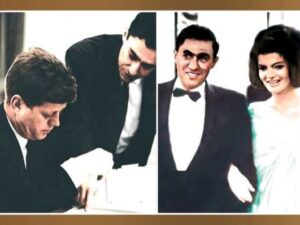Crisis comms lessons from the Northwestern football scandal
In its handling of an independent investigation, the university confronted common, but crucial, crisis questions.

Tom Corfman is a lawyer and senior consultant with Ragan Consulting Group, where he leads the crisis communications practice.
Critics may claim that big-money college sports don’t teach players lessons that last a lifetime, but a sports crisis can offer valuable instruction to corporate communicators, even those who aren’t fans, as the controversy embroiling Northwestern University shows.
On July 7, 2023, the Big 10 school announced it had suspended popular head football coach Pat Fitzgerald for two weeks after an independent investigation into hazing.
“Hazing in any form is unacceptable and goes against our core values at Northwestern,” President Michael Schill said in a news release.
One day later, in a letter to the school’s community, Schill said he “may have erred” in imposing a suspension.
On July 10, Schill fired Fitzgerald, who had turned around a perpetually losing program during 17 seasons, leading the Wildcats to 10 bowl games.
What happened during those three days illustrates key questions that crisis communicators often confront. Can we keep a lid on bad news? How do we determine the likelihood that the worst version of the bad news will come out? How do we get accurate information? And once we have the facts straight, how do we evaluate their significance? Can full disclosure cut short the controversy?
A crisis puts large organizations between a rock and hard news, between the instinctive desire to shut down communication and the demands for transparency. Effective communication won’t end a crisis, but it can limit the damage to a reputation. In some cases, organizations emerge with stronger brands.
A Northwestern spokesperson did not respond to emails with detailed questions and telephone calls requesting comment. Let’s walk through those three tumultuous days in the 170-plus-year history of the Evanston, Illinois school.
The investigation
The school received a complaint about hazing in the football program on Nov. 30, 2022, and hired a law firm to conduct an investigation. The whistleblower’s identity was kept from school officials.
Athletic director Derrick Gragg told players and coaches about the investigation on Jan. 11, 2023– the same day a source told Adam Rittenberg, a senior writer with ESPN. The university then confirmed the investigation in a statement.
In announcing Fitzgerald’s suspension on July 7, the press release said: “While the investigation did not discover evidence that coaching staff knew about ongoing hazing, the investigators said that there had been opportunities for them to discover and report the hazing conduct.”
The release was issued on a Friday morning at the end of a holiday week, when many newsrooms were likely short-handed. The press release downplayed the news, with a headline that read,” Northwestern announces actions to prevent hazing following football investigation.”
Fitzgerald’s suspension was mentioned in the second headline deck, but not again until the fifth paragraph, as one of six other changes. Accompanying the release was a summary of the investigation that did not describe the nature of the hazing.
The press release was widely rewritten by the news media without additional reporting, a practice often called “summing” in newsrooms.
But there were signs that more details of the hazing would emerge. During the investigation, 11 current or former football players confirmed the hazing, as we learned when Fitzgerald was fired, although some players offered conflicting accounts. That gave reporters plenty of potential sources and time for interviews as the investigation moved along.
In a possible sign that Northwestern didn’t expect a big story, Gragg was out of the country on vacation when the suspension was announced. He was in contact with school officials, but didn’t return until July 12, after Fitzgerald was fired.
The Daily
The story changed dramatically the next day, July 8, when the school’s student newspaper, The Daily Northwestern, published, “Former NU football player details hazing allegations after coach suspension.”
“A former Northwestern University football player told The Daily some of the hazing conduct investigated by the university involved coerced sexual acts,” the newspaper reported. “A second player confirmed these details. The player also told The Daily that head coach Pat Fitzgerald may have known that hazing took place.”
The former player, who was unidentified but likely the whistleblower, said groups of 8-10 upperclassmen, wearing “Purge-like masks,” would hold down underclassmen and “dry-hump” freshmen in a dark locker room.
That story exploded across major news media outlets and prompted outrage on social media. More reporters began digging into the story.
Second thoughts
Near the end of the day on July 8, Schill said he was considering changing his mind.
“In determining an appropriate penalty for the head coach, I focused too much on what the report concluded he didn’t know and not enough on what he should have known.”
(Perhaps Schill, a legal scholar, or the investigation team had forgotten about the “ostrich instruction,” in which jurors are told that deliberately avoiding facts is the same as knowledge.)
In an interview with the Daily after this story was published, Schill said, “I was affected by reading your coverage, I was affected by additional allegations we received, I was affected by the impact it was having on our community.”
But effective crisis communication demands looking at the facts as an outsider would.
Schill “wasn’t thinking of all the consequences and all of the blowback,” Northwestern Trustee Michael Wilbon told WMVP-AM, a local ESPN radio station in Chicago. “And I’ve said, this is not going to be a tornado. And I’ve said this talking to our administration: This was not going to be a tornado. It’s going to be a tidal wave.”
The firing
On Sunday, July 9, Schill told the Daily he reread the report and met with the executive committee of the Board of Trustees. The next day, he went over the actual testimony with the lawyers who conducted the investigation.
“When you hear it, one by one, one instance of bad behavior after another, the magnitude of it hit me even more,” he said.
That much analysis may not have been necessary.
“After you see the report, two weeks is really inadequate,” Wilbon, an ESPN commentator said of Fitzgerald’s suspension. “‘I didn’t know’ is not good enough.”
In announcing Fitzgerald’s dismissal on July 10, Schill confirmed what everybody already knew.
“The hazing included forced participation, nudity and sexualized acts of a degrading nature,” he said.
He said he was grateful no students had suffered a physical injury but didn’t acknowledge the emotional trauma they may have suffered.
Schill did mention Fitzgerald’s love of the university, praising his contributions to the school.
More to come
As if the school didn’t have enough going on, Northwestern fired its head baseball coach on July 13. That move came after reports by the Chicago Tribune and 670 the Score, a radio station, about Jim Foster’s conduct, including what an internal resources report called “bullying and abusive behavior.”
Meanwhile, the hazing story isn’t over. One interview with the Daily isn’t likely to satisfy a hungry news media and the school hasn’t released the report of the investigation despite demands.
Fitzgerald, who has denied any knowledge of the hazing, is considering suing the school and has hired prominent attorney Dan Webb, who recently defended Fox News in the libel lawsuit brought by Dominion Voting Systems.
At least two former players have filed lawsuits against the school and 15 former athletes have hired high-profile civil rights lawyer Ben Crump, who said at a news conference that male and female athletes in two other sports reported hazing to the school.
What could go wrong?
Follow RCG on LinkedIn and subscribe to our weekly newsletter here.






